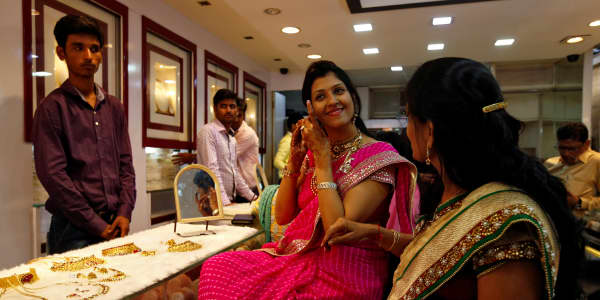Running a business is a challenging prospect at the best of times. Running one with members of your family will certainly lead to some tough discussions around the dinner table.
Here, CNBC takes a look at some of the oldest family-run companies in the U.K., and finds out how they've lasted so long.
Peter Freebody and Co
Peter Freebody and Co says the Freebody family has been "living and working" on the river Thames since the 13th century.
Born in 1934, Peter Freebody grew up in a boatyard, where the company says wooden boats were built "by hand, and by line-of-eye… in ways that had changed little in a thousand years."
Freebody began to "shape" the business in the 1950s, adding new facilities and specializing in the building of wooden boats. He died in 2010 but his son, Richard, is now in charge, aided by his sisters Helen, Melanie and Katie.
Whitechapel Bell Foundry
Founded in 1570, east London's Whitechapel Bell Foundry is said to be the oldest manufacturing company in Britain.
The business has cast the world's most famous bells – including London's Big Ben and the original Liberty Bell in Philadelphia.
Arthur Hughes joined in 1884 as general manager, before buying the business in 1904. The foundry is still in the hands of the Hughes family.
R Durtnell & Sons Limited
The ups and downs of the global economy make construction a tough business to be in. R Durtnell & Sons Limited has managed to hang on in there for more than 400 years.
It claims to be the oldest building company in the U.K., and traces its history all the way back to 1591, when Elizabeth I was on the throne.
Today Alexander Durtnell represents the 13th generation of the Durtnell family to be involved with the business, which says it now employs around 100 people full time and has a turnover of £40 million ($53 million).
The business has worked on a host of famous and historic sites, including the Dulwich Picture Gallery in London (pictured), Salisbury Cathedral as well as several National Trust properties.
Lock and Co. Hatters
The origins of Lock and Co. Hatters date back to 1676, when, according to the company, "hatter" Robert Davis opened up a store on London's fashionable St James's Street.
Davis' son, Charles, took on James Lock as an apprentice in 1747 and the rest is history.
Lock went on to marry Mary Davis - Charles' daughter - in 1759, according to the business.
Today it says it is both the world's oldest hat shop and "one of the oldest family-owned businesses still in existence," and the proud holder of two royal warrants.
C. Hoare and Co
Founded in 1672 by Richard Hoare, C. Hoare & Co. says it is the U.K.'s "oldest, family-owned private bank". Based on London's historic Fleet Street since 1690 it is still owned and run by the Hoare family, several of whom sit on the board as partners.
The bank says that today it employs almost 400 staff and has a balance sheet of "approximately £3.3 billion."
Toye & Co
Established in 1685, this family-run business says it specializes in the design and production of "jewelry and identity products for governments, corporates, fraternal and friendly societies, and clubs and associations."
The company continues to be run by the Toye family, and holds a prestigious Royal Warrant from the Queen, supplying gold and silver laces, insignia and embroidery.
The business' work could, for example, be seen at the 1937 coronation of King George VI (pictured) in the form of robes and banners.
Berry Bros. & Rudd
Based on the plush St James's Street in central London, wine and spirit merchants Berry Bros. & Rudd – which supplies the royal family – says it can trace its history back to 1698, when a widow opened a grocer's opposite St. James's Palace.
According to the company, the business eventually fell into the hands of George Berry, whose name was on the shop front by 1810 and steered it towards wine.
In 1920 Hugh Rudd joined the operation and members of both the Berry and Rudd families still run the business to this day.
Simon Berry, a seventh-generation member of the Berry family, is the current chairman and has been working there in a variety of roles for more than 30 years, according to the company.
The business says that the "future Napoleon III" – who lived in London during the 1830s as an exile – held secret meetings in its cellars, while 69 crates of its products were on the Titanic, which sank in 1912.




